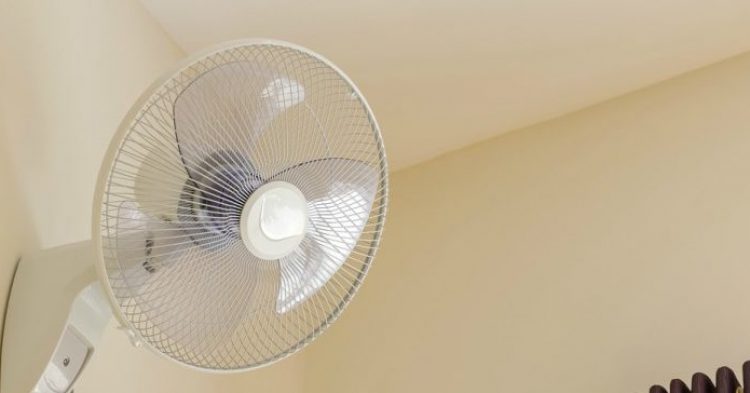When the nights are steamy and you need a little relief from the heat, chances are, if you don’t have air conditioning, you run a fan to help cool the air and make sleeping conditions more comfortable. Have you ever stopped to consider what happens to you when you fall asleep with the fan on? Likely, you never gave it a second thought.
Is running a fan at night bad for your health? Turns out, it’s not that great, as Tip Hero rounded up a few of the things that could happen to you when you sleep with the fan running.
Drying Effect: It makes sense that blowing air around all night could cause a drying effect, but many people wake up feeling a bit worse for the wear because of it. If you use a fan, you might wake with a dry mouth or throat. If you sleep with your mouth open, things can get downright parched as a result. Similarly, people also experience dry eyes and nose, leaving your eyes red and your nose possibly stuff or irritated when you wake up.
In more severe cases, people have experienced nosebleeds because of the dry air. If you already suffer from nosebleeds when the air is dry, then you might want to reconsider using a fan.
Allergies and Asthma: Anyone who suffers from allergies and/or asthma may find that running a nightly fan exacerbates their symptoms. Consider that a fan is blowing air around — which may contain allergens such as dust, cat dander, mold, or pollen, if the window is open. Suddenly, you’re caught up in a whirlwind of allergic matter that may cause increases in sneezing, itchiness, or even make breathing more difficult.
Soreness: Can running a fan while you sleep cause muscle soreness? Interestingly, it may make your muscles stiffen or contract when the air hits a certain temperature, especially if cool outside air is being circulated.
The Sleep Advisor website recommends that you not aim a fan too close to your face and to use an air purifier to counteract all of the allergens that get stirred up when a fan is blowing. If you use a ceiling fan, it’s a good practice to wipe down the blades periodically with a damp cloth to eliminate dust. Similarly, you can usually take apart a conventional fan to clean the fan blades off.
Many people debated these issues on social media with some diehard fan users weighing in with their experiences. One person stated: “I had a fan blowing on me almost every night for the past 20 years, and only time I have a real hard sleeping is without a fan.”
Another person shared: “I am not giving my fan up! It’s good for me. It helps me sleep 365 days out of a year. Without it I am wide awake and I hate hearing the sounds of night. I love the sound of the fan blowing.”
One commenter offered these suggestions: “Well, as long as you keep your room and the fan clean, and the rotation setting so its not directly on you, it shouldn’t be too bad. Use moisturizer, keep water by your bed.”
